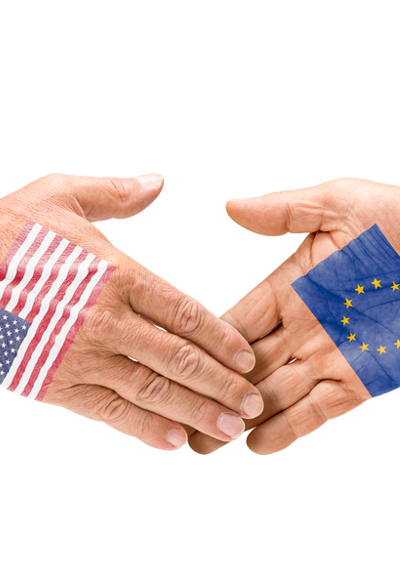How Britain Punishes Itself
Theresa May’s Brexit plan will do some significant damage to the British economy.
January 17, 2017
Beyond Theresa May’s mellifluous rhetoric in her Lancaster House speech, there are some harsh realities that determine Britain’s negotiating path — but that she is either deliberately overlooking or making light of.
- There is no significant evidence that EU membership has held back the UK in an economically meaningful way. Instead, the UK economy has done well within the EU, even somewhat better than Germany or Sweden on many counts.
- The notion that the UK could turn itself into Europe’s Singapore, a rich free-wheeling low-tax service and trade center at the edge of the continent, is largely fantasy.
- The UK is simply in the wrong time zone to be the services center of Asia. It needs Europe as a major market.
- The more the UK deviates from European norms, the more the EU will regulate and restrain its imports from the UK.
- Whatever the economic merits of tax dumping, foreshadowed by Philip Hammond may be – i.e., the more the UK tries to be an offshore tax haven — the more will the EU see to it that the goods and services the UK offers will also stay offshore. That means they cannot be sold easily in the EU.
- The UK needs trade with the — much bigger EU27 — more than vice versa. Whereas the UK earns 12% of its GDP by exporting goods and services to the EU27, the reverse flow accounts for just 3% of EU27 GDP.
- Geography is destiny. For all the talk about limitless globalization, the actual conduct of trade is amazingly region-based – meaning that nations end up doing most of their trading with nations nearby (and not those very far away).
- For the EU27, preserving its own cohesion is the absolute priority. Preserving preferential access to the UK market is nowhere near the top of priorities.
- The EU27 will take a hard line without wanting to genuinely punish the UK. If “Brexit means Brexit” (Theresa May), then “out means out” (Wolfgang Schäuble).
- Losing the UK’s €12 billion net contribution to the EU budget would be somewhat unfortunate for the EU27. But relative to the size of the EU27 economy (about €12 trillion), the sum is small. With its fiscal surplus, Germany could easily take a little more than its fair share of that.
- If the UK wants to preserve any element of preferential access to the EU market, it will have to pay into the EU budget in return, just as Norway and Switzerland do.
- To argue that the EU27 will suffer more from Brexit – and that the EU would thus want to offer the UK a sweet deal in order to reduce the supposed damage to the EU27 – is a typical “tail wags dog” delusion.
- A Trumpian “great trade deal” with the United States will do little more than to preserve the access to the U.S. market which the UK enjoys at the moment. Thus, it has no positive economic effect.
- The Brexit plan devised by Theresa May will hurt the British economy.
- The UK could offset some of the Brexit damage through pro-growth reforms. However, the UK is already lightly regulated in many areas. Thus, the scope for further liberalization is very limited.
Also, the political climate in the UK with its strong populist streaks (think UKIP, Jeremy Corbyn, Boris Johnson) does not suggest that the UK will embark on a massive deregulation drive soon, reducing “workers rights” and the like on a major scale.
Conclusion
The very fact that the EU27 finds it difficult to agree makes it unlikely for the UK to get much of a “bespoke” deal.
Takeaways
The notion that the UK could turn itself into Europe's Singapore, a rich free-wheeling low-tax service is fantasy.
For the EU27, preserving its own cohesion is the priority and not preserving preferential access to the UK market.
If "Brexit means Brexit" (Theresa May), then "out means out" (Wolfgang Schäuble).
A Trumpian "great trade deal" with the US will do little more than to preserve the access to the U.S. market.

